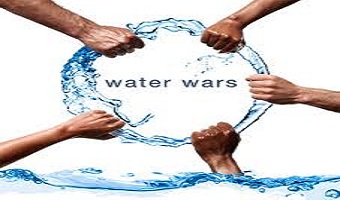IAS PRELIM /HCS MAIN EXAM FREE STUDY MATERIAL- IV
EXPECTED TOPIC FOR IAS PRE/HCS MAIN EXAM 2013
New National Water Policy 2012:
Ministry of Water Resources has evolved the Draft National Water Policy (2012) to meet the present challenges in the water sector.
There is no proposal at present for a separate Interlinking River Policy. However, the draft National Water Policy (2012) stipulates that inter basin transfers of water should be considered on the basis of merits of each case after evaluating the environmental, economic and social impacts of such transfers.
The Supreme Court in its order dated 27.02.2012 has directed the Union of India and particularly the Ministry of Water Resources to forth with constitute a Committee to be called ‘Special Committee for Inter-Linking of Rivers’.  Accordingly, the Government is constituting the High Power Committee for interlinking of rivers as per the direction of the Supreme Court. Thenomination from the States involved in the Inter-linking of rivers have been called for.
The salient features of the Draft National Water Policy (2012) are :
SALIENT FEATURES OF REVISED DRAFT NATIONAL WATER POLICY (2012)
 (i)    Emphasis on the need for a national water framework law, comprehensive legislation for
optimum development of inter-State rivers and river valleys, amendment of Irrigation Acts, Indian Easements Act, 1882, etc.
 (ii)       Water, after meeting the pre-emptive needs for safe drinking water and sanitation, achieving food security, supporting poor people dependent on agriculture for their livelihood and high priority allocation for minimum eco-system needs, be treated as economic good so as to promote its conservation and efficient use.
(iii)Â Â Â Â Â Â Â Ecological needs of the river should be determined recognizing that river flows are characterized by low or no flows, small floods (freshets), large floods and flow variability and should accommodate development needs. A portion of river flows should be kept aside to meet ecological needs ensuring that the proportional low and high flow releases correspond in time closely to the natural flow regime.
(iv)Â Â Â Â Â Â Â Adaptation strategies in view of climate change for designing and management of water resources structures and review of acceptability criteria has been emphasized.
(v)       A system to evolve benchmarks for water uses for different purposes, i.e., water footprints, and water auditing be developed to ensure efficient use of water. Project financing has been suggested as a tool to incentivize efficient & economic use of water.
(vi)       Setting up of Water Regulatory Authority has been recommended. Incentivization of recycle and re-use has been recommended.
(vii)Â Â Â Â Â Â Â Water Users Associations should be given statutory powers to collect and retain a portion of water charges, manage the volumetric quantum of water allotted to them and maintain the distribution system in their jurisdiction.
(viii)Â Â Â Â Â Â Â Removal of large disparity in stipulations for water supply in urban areas and in rural areas has been recommended.
(ix)Â Â Â Â Â Â Â Water resources projects and services should be managed with community participation. Wherever the State Governments or local governing bodies so decide, the pri vate sector can be encouraged to become a service provider in public private partnership model to meet agreed terms of service delivery, including penalties for failure.
vate sector can be encouraged to become a service provider in public private partnership model to meet agreed terms of service delivery, including penalties for failure.
(x)Â Â Â Â Adequate grants to the States to update technology, design practices, planning and management practices, preparation of annual water balances and accounts for the site and basin, preparation of hydrologic balances for water systems, and benchmarking and performance evaluation.
The draft National Water Policy (2012) is to be considered by the National Water Resources Council (NWRC) for adoption. Thereafter, the National Water Policy would be recommended to all States for implementation.















